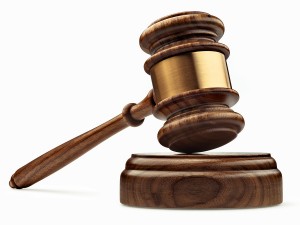Apple Inc. (AAPL) will face the latest of a seemingly endless barrage of patent lawsuits on Tuesday, February 11 2014, according to a press release issued today by the presiding authority, the Mannheim Regional Court. The German court will be hearing arguments both from Apple’s representatives and those of the plaintiff, IPCom GmbH & Co. KG, various described as a patent licensing company, a Non-Practicing Entity (NPE), or a professional patent trolling firm. The lawsuit seeks $2.1 billion in damages for Apple’s alleged infringement of a 3G patent.
A frenzied pursuer of wireless patent infringement claims, IPCom has kept Mannheim Regional Court busy with its endless litigation against an array of international targets. Indeed, the activities of this firm have made the Mannheim court the world’s leader in wireless patent trials. According to its company website, IPCom holds some 1,000 patents, which it uses as a legal arsenal in its constant search for intellectual property profits. A sizable chunk of these patents relate to 2G, 3G, and 3.9G mobile communications technology.
 Apple Inc. faces a formidable opponent in the German company, which has won high profile cases against other major technology companies such as Nokia and cashed in on robust damages awards. The Mannheim Regional Court seems to be fairly favorable to IPCom’s claims as its default legal position. The patent licensing firm, operated by Berhard Frohwitter (a lawyer) and Christoph Schoeller (an engineer and economist), reminds companies that buying a license from them is far cheaper than paying the damages likely to be awarded if the court rules against the defendant in one of the infringement cases.
Apple Inc. faces a formidable opponent in the German company, which has won high profile cases against other major technology companies such as Nokia and cashed in on robust damages awards. The Mannheim Regional Court seems to be fairly favorable to IPCom’s claims as its default legal position. The patent licensing firm, operated by Berhard Frohwitter (a lawyer) and Christoph Schoeller (an engineer and economist), reminds companies that buying a license from them is far cheaper than paying the damages likely to be awarded if the court rules against the defendant in one of the infringement cases.
Neither IPCom nor Apple Inc. has commented on the legal wrangle. IPCom stands a high chance of winning its case in Mannheim, since the German court system is highly favorable to patent holders and does not abide by FRAND (fair, reasonable, and non-discriminatory) licensing standards which are applied practically everywhere else in the world. However, IPCom may find it difficult to enforce injunctions in the United States even if it is successful against Apple in its home country.
For more Apple news follow PFhub on FaceBook, Twitter or bookmark this page.



